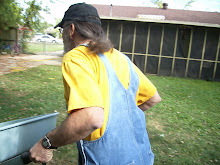Eleazar and Ittai marched side-by-side at the head of the funeral detail. On the edge of the Wilderness of Judah, the cliffs rose straight up, for nearly a thousand feet. The sparse vegetation of stunted hawthorn and white cistus brightened the otherwise desolate landscape. Only during the rainy season would there be enough grass to graze sheep, though goats might find forage year-round among the rocky crags.
Eleazar marched in silence, his mind deep in thought over the death of Joab, and the words Benaiah had spoken. He recalled others he had known, who had spoken similarly; Abner, Uriah, both dead at Joab’s hand. Josheb and Shammah, who had shared hardship and peril with him. He recalled the conversation he had shared with Nathan after Josheb’s death. Ittai’s voice startled him out of his reverie.
“I have been thinking about what Beniah said.”
“Strange,” replied Eleazar, “I too have been reflecting on his words.”
“Do you truly believe that we must all answer somehow, after death, for all our deeds?”
“How else are we to believe that God is just, when we see the wicked prosper and good men struck down before their time?’
“My people believe that Dagon blesses some with strength and courage for the day of battle. Is it not enough that a man slay his enemies and be honored as a mighty warrior?”
Eleazar perceived that Ittai was not pressing his argument so much as asking for an honest evaluation of his words. He considered carefully before offering his reply.
“Tell me then, why you did leave Gath to join David and serve your sworn enemy?” A rare smile crossed the lips of the Philistine.
“At Pas Dammim, I saw three warriors defy an army. The power of the Five Cities was broken on your swords. Yet there was another thing as well. When I first met David at Gath, I was struck by a serenity rare in those who follow the sword.” He stopped, studying Eleazar’s face to see if he was understood.
“I once asked you what sustained you that day. I see now that it is faith in your God that gives you strength in the day of battle. This is what I perceived in David. I came to Jerusalem because I needed to know more about this faith. I wished to serve a man dedicated to something beyond himself. What is it about your God that inspires a man to seek something beyond his own fame and wealth?”
“All my life,” Eleazar replied, “I have seen God’s gracious providing for His people; in the spring and autumn rains, abundant crops and His love expressed through the love of family and friends. Yet I was able to understand only the hatred in my heart toward the enemies who had slaughtered my family. I was filled to bursting with the desire for revenge.” Ittai was nodding as though he too had experienced these emotions.
“Revenge is a bitter dish upon which to feed for an entire lifetime,” the Philistine spoke.
“So I came to realize. As the seasons followed, one after the other, and life continued in spite of the death and destruction, God spoke into my heart through those around me; Josheb, Shammah, Nathan, and even David. I came to understand that we serve God first and foremost, no matter what our calling.”
“But what about me, Eleazar? I have not always served the God of Israel. I am not a descendant of Abraham. Can there be sacrifice enough for me?”
“Can there be sacrifice enough for any of our deeds? We all have sinned against the God of Heaven. In the Books of the Law of Moses, we read about our father Abraham. Though he was old and without heirs, God promised to make him the father of many nations. Abraham believed this promise, we are told, and this faith God counted as righteousness.”
Eleazar saw the light of understanding begin to dawn in the eyes of his companion.
“Don’t you see, Ittai, we can never keep God’s law perfectly. It is only through faith in the God of Abraham, Isaac, and Jacob that we have the chance and hope of deliverance.”
Ittai smiled. “I thank you for your words. You have expressed the reason behind the desire that drew me to Jerusalem in the first place. Though David was fleeing Absalom and advised me to return to my people, it was this hope that compelled me to offer my service to Israel’s king, come what may.”
“How fitting,” Eleazar replied with a smile of his own, “that you who have been Israel’s sworn enemy should end up at last, fighting in the army of the Lord of Hosts. Abraham was promised by God that all nations should be blessed through him. You march alongside me, I believe, in fulfillment of that promise.”
Ittai studied these words as they made their way to the burial cave of Joab’s family.
It was the height of irony, Eleazar reflected, that Ittai and his Gittite warriors should accompany the body of Israel’s former commander, who had hated them with all his being, to his final resting place. Eleazar had picked them for this purpose. They placed Joab’s body in the burial cave at the edge of his property, and, after rolling the stone over the opening, began the long march back to Jerusalem through the semi-arid terrain.
Is this the end of the bloodshed, Eleazar wondered again? Joab, the man of blood, is dead and buried. I pray, O God, that the king’s son will have a long and peaceful reign. I pray that Israel’s sons will no longer be forced to stand in battle, against an opressor, or against each other. I pray that we and those who follow after us may, at long last, quit this field of blood.
Subscribe to:
Post Comments (Atom)

No comments:
Post a Comment